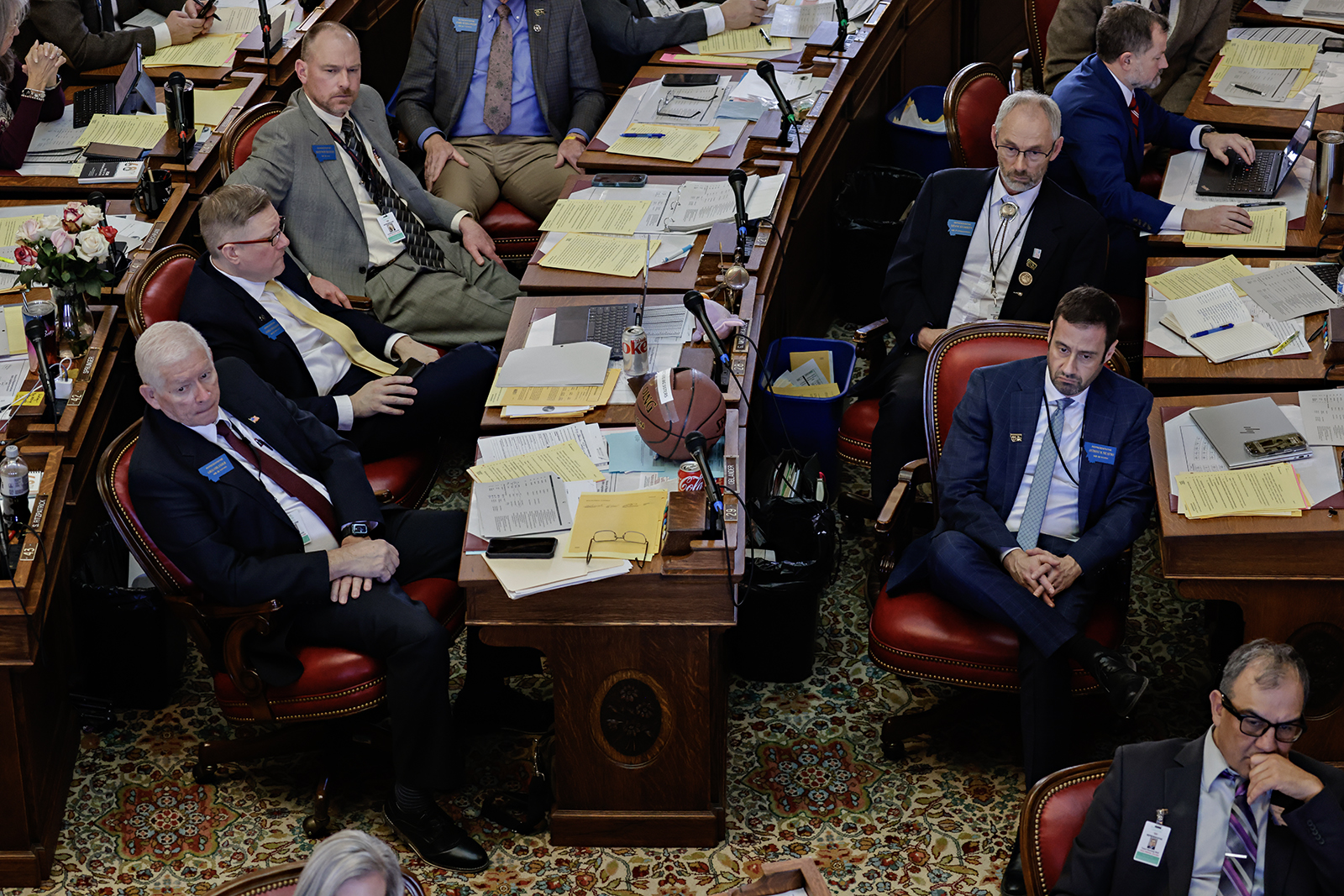Montana Lawmakers Move to Regulate Artificial Intelligence
Legislators are considering bills to put guardrails on AI as the threats — and possibilities — of advanced computer systems loom in Montana
By Denali Sagner
Legislators in Helena are working to put guardrails on artificial intelligence (AI) as officials warn of the benefits — and pitfalls — of the advancing systems. A slate of bills, many of which have been brought by the Legislature’s younger members, seek to regulate the use of AI systems and prime the state for more informed policymaking in future years.
Sponsored by Rep. Braxton Mitchell, R-Columbia Falls, House Bill 179 places regulations on how Montana’s government agencies can employ AI.
Specifically, the bill bans government agencies from using AI to classify a person or group based on “behavior, socioeconomic status, or personal characteristics resulting in unlawful discrimination or a disparate impact.” It bars the use of AI for “cognitive behavioral manipulation,” for malicious purposes or for surveillance of public spaces, with the exception of locating a missing person.
The legislation requires agencies and government officials to disclose to the public when any materials are produced with AI or when a government system that interfaces with the public uses AI. Any recommendation made with AI that could impact an individual’s rights must be reviewed by a human being.
For example, Mitchell told the Beacon on Thursday, if an AI system determines an individual is not eligible for Medicaid, a human worker would be required to go in and review that rejection.
“What’s crazy is, two years ago, we weren’t even talking about AI,” Mitchell, one of the Legislature’s youngest members at 24, said. “We heard about it, but in these hallways, there was no discussion, no legislation.”
Mitchell’s bill includes certain exclusions for law enforcement officers, who during a committee hearing said AI could be a critical tool in solving certain crimes. The bill now exempts law enforcement officers from disclosing the use of AI if the disclosure would hinder an investigation or endanger someone’s physical safety.
The bill defines artificial intelligence as “a machine learning-based system that, for any explicit or implicit objective, infers from the inputs the system receives how to generate outputs, including but not limited to content, decisions, predictions, and recommendations that can influence physical or virtual environments.”
The legislation has received bipartisan support.

During a House floor hearing on the bill, House Minority Leader Katie Sullivan said, “It’s always easier to put sideboards on a technological system before it’s commonly used by tech companies and our government, and I appreciate that this is getting ahead of the game with AI.”
Sen. Daniel Zolnikov, R-Billings, one of Montana’s younger senators, has led the charge on AI and digital privacy bills since being elected to the state Legislature in 2013.
Speaking to the Beacon on Friday, he said, “the foundation of good AI legislation is privacy legislation.”
Montana, Zolnikov said, has good privacy laws, which will help protect residents as computer systems continue to advance. Zolnikov last session sponsored laws to protect Montanans’ genetic information and consumer data, both of which were signed by the governor.
This session, he’s the sponsor of Senate Bill 212, which gives individuals and businesses the explicit right to develop AI systems, however leaves open the potential for the state to establish tighter guardrails in the future.
Speaking in committee about the bill, he said, “This is the world we’re coming to, as you know. There’s a lot of fear of the unknown, but we never used to be like that as a country. Innovation was always an exciting thing … Now, some people are like, ‘If I don’t understand it, I don’t like it,’ instead of, ‘Hey, where’s this going, and what tools can I use? And what can we do with it?’”
Lawmakers in the House also unanimously supported creating an interim study committee that will examine AI regulations and assess its benefits and risks.
Rep. Jill Cohenour, D-East Helena, has sponsored three bills related to AI, two of which passed the House and are moving through the Senate. House Bill 514 creates the crime of extorting someone with a digitally-altered image and creates a course of legal action for such offenses. House Bill 513 gives individuals the rights to their name, voice and likeness, which Cohenour said will help protect Montanans against nefarious actors using AI to create doctored voice recordings or photos.
A third bill from Cohenour regulating how insurance companies use AI was tabled in committee in February.
A bill by Sen. Laura Smith, D-Helena, creates the crime of making sexually-explicit deepfakes, or videos or photos that look real but have been altered by AI.
Speaking on behalf of the Montana County Attorneys Association during a committee hearing on Smith’s bill, Nannette Gilbertson said, “AI has arrived, and we are dealing with it and we’re going to be dealing with it.”